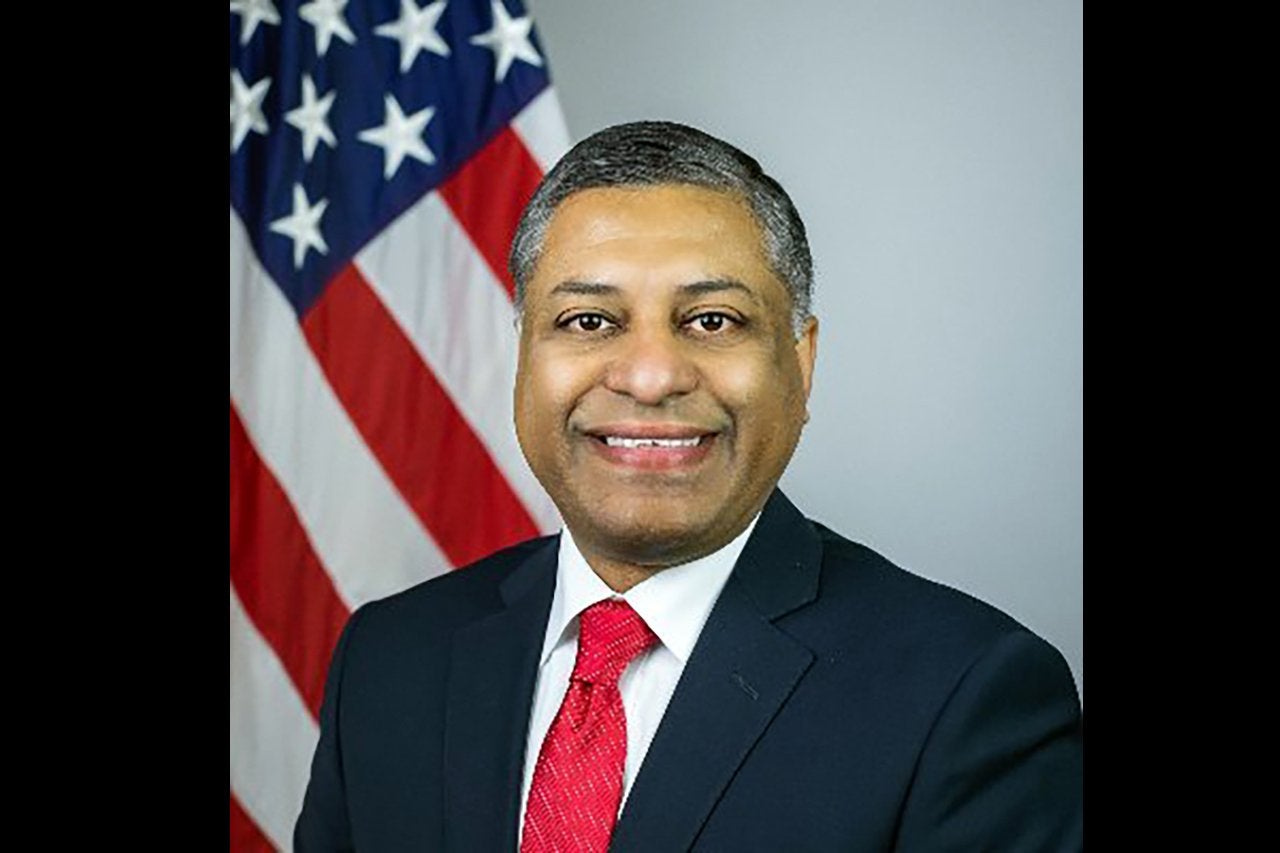Drug overdoses took the lives of more than 100,000 Americans last year – an almost 50% increase over 2019, according to the Centers for Disease Control. That’s more than deaths from guns and auto accidents combined. No other advanced country has a comparable drug crisis, the result of a surge in opioids and a dearth of treatment programs. If it’s easier to get high than get help, addicts will choose the former.
Fortunately, there’s a place for students at the College of Charleston to seek help: the Collegiate Recovery Program. “My program is sitting here because of the opioid crisis, there’s no doubt,” says Director Wood Marchant ’89, who holds regular recovery meetings for 15 active members this semester. “What’s always been my goal is just to have a little touch point daily for the students.”
But since the program’s inception in 2016, perhaps no guest speaker has excited Marchant as much as the Feb. 23, 2022, visit to CofC of Dr. Rahul Gupta, the director of the White House Office of National Drug Control Policy. The first medical doctor to ever lead the office, he was a practicing physician and former health official in West Virginia and has firsthand experience of the heartbreaking toll addiction and overdose has on communities.
“He was kind of in the middle of it in West Virginia, which was one of the epicenters of the opioid epidemic,” says Marchant, who will host the event. “He’s been on the front lines. The great part of my job is seeing people get well, and I’m sure that’s probably something he relishes, seeing people turn their lives around. I get a front row seat for that. It’s pretty cool.”
The event kicks off at 1:30 p.m. in the Stern Ballroom and is open to the public with about 75 seats available. The forum will also be livestreamed on CofC’s YouTube channel. After opening remarks by CofC President Andrew T. Hsu and Charleston Mayor John Tecklenburg, Judge Brucie Hendricks ’83 will speak. In addition to starting one of the first federal drug courts in the country in Charleston 12 years ago, Hendricks also set up the Addiction Crisis Task Force (ACT Force) in 2019 with Gil Kerlikowske, Gupta’s predecessor in the Obama administration who now lives in Charleston and is responsible for Gupta’s visit.
“Dr. Gupta brings a public health perspective, I brought a law enforcement perspective but the strategy we both follow is that the crisis, and it is a crisis, is not one that a single discipline can solve,” says Kerlikowske. “COVID has taken the public eye off the overdose crisis but the numbers are staggering. Dr. Gupta will bring a multi-disciplinary view and the backing of the White House to a strategy to begin to lower the fatalities, overdoses and reduce the stigma of addiction.
“We are very pleased that he is so interested and supportive of the Collegiate Recovery Program (CRP),” he adds. “I believe CofC CRP is one of the very best and serves as a model.”
Gupta will also give a treatment-focused keynote at the Medical University of South Carolina for the medical community after which Hendricks will host an informal lunch for Gupta at the Federal Courthouse with members of the ACT Force.
Following Gupta’s talk and Q&A session at CofC, Kerlikowske will moderate three panel discussions on how Charleston and the state are dealing with the opioid crisis.
“It’s really just an educational forum to find out what the Biden administration is doing and what we’re doing locally and statewide,” says Marchant. “It’s a wonderful opportunity for the College. I’m honored that they reached out to us.”




